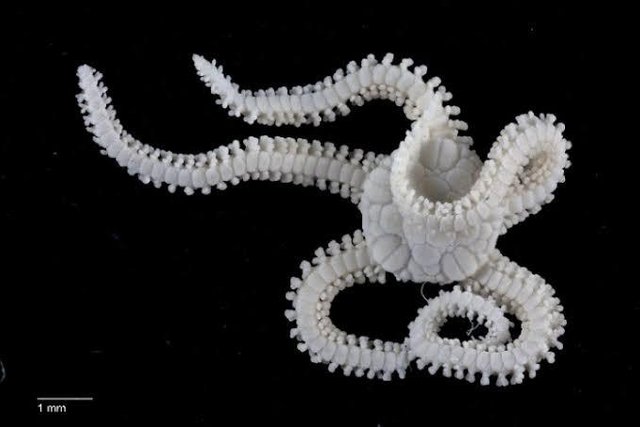A 435 million-year-old fossil has been discovered in the west of Ireland
DUBLIN - A 435-million-year-old brittle star fossil, discovered in Ireland, has been identified as a new species. Species of sea creatures are associated with modern starfish and are considered to have remarkable survival abilities.
According to a new study by an international team of researchers, snake stars first evolved approximately 500 million years ago and almost never change until today. At 400 million years ago, snake star species also survived the ocean of its disappearing habitat after the Earth's tectonic plates shifted. The fossil was found in Ireland and was named Crepidosoma doyleii, after Dr. Eamon Doyle discovered it in the 1980s.
"I am delighted with the appreciation given to me by this internationally renowned and respected paleontologist," said Dr. Doyle in a statement.
According to Dr. Doyle, the snake star has tremendous defensive power, and even lived through the mass extinction continents of dinosaurs. Read also: Live Dinosaurs 126 Million Years Ago Regarded as Pokemon "A remote area in western Ireland continues to show some remarkable fossils that have had a significant impact on our understanding of life's history.The new and unique specimens, starfish fossils from the Silurian Connemara rocks, is a key evidence in the hunt for ancient life in the oceans that once covered Ireland, approximately 435 million years ago, "said David Harper, a professor at Durham University and co-author of the study.
Harper states, the researchers owe much to Dr.Eamon Doyle's efforts that carefully combed the distant mountains for fossils, during his PhD studies at University College Galway (now NUI Galway). He continued, it also encouraged re-research in many lesser-known areas of the Silurian time period.
"The remote areas of western Ireland should be even more famous!", Harper said, quoted by the International Business Times, Monday (22/1/2018). Meanwhile, the fossil will be on display at the National Museum of Ireland. The findings of the new study have been published in the Irish Journal of Earth Sciences.
